It wasn’t long ago that living off-grid was an alternative lifestyle that only the most committed and adventurous people would ever dream of attempting.
Fast forward to today, and a heightened focus and increased awareness around sustainability, combined with recent advances in technology have made off-grid living a viable option for anyone willing to invest in building an eco-friendly prefab home.
Choosing to live off the grid is a big decision, and one that requires much planning and research to execute well. You should also be clear on your why. Maybe you are looking to reduce your environmental footprint, reduce your power bills, be energy independent, or a combination of these. Whatever your reason, if it is something that you’re considering, read on for an overview of the key considerations of living off the grid in Australia.
What does off-grid living actually mean?
Essentially, living off the grid means you are not reliant on external sources to provide you with your essential services like water, gas, electricity and sewerage. Instead, you are able to capture and manage it sustainably on your land.
Off-grid land
When choosing land for your new home build it is always important to complete your due diligence to make sure you are aware of any hidden costs or barriers to building your home that may be lurking.
If you find a block you like, it’s a good idea to talk to the local council before you purchase it to find out if there are any specific planning permits or other regulations that may impact your plans to build an off-grid home. You should also make sure the land is big enough to accommodate any infrastructure required to generate your power, store your water and effectively treat your wastewater.
Off-grid house design
As with any new modular home, passive design principles should be a priority, in particular getting the orientation right to maximise passive gains. In most parts of Australia, the living zone would ideally be north facing to capture the sun in winter, with shading added to prevent too much sun in the warmer months.
Off-grid energy source
When it comes to an alternative power source, solar panels are the most common choice. Over the past few years they have also become more affordable thanks to government rebates and a reduction in the cost of the supply and installation. They have also improved in design, so that a system that is the right size and set up should be able to meet the energy needs of the household. You’ll need to consider how much energy you require each day so you can calculate how many solar panels you’ll need and decide where they’ll go.
Systems are always installed by accredited specialists and the set up usually includes the panels, a battery to store your excess power for when it’s needed, a battery charger and an inverter to turn the energy from DC to AC. Most systems also come with a fuel generator as an added back up. You can read more about the difference between on-grid and off-grid solar panel systems here.
Solar can be used to power your electrical appliances as well as your hot water. You can read more about solar hot water systems here.
Once the construction of your Anchor Home is finished, you can consider the installation of solar panels, enhancing the sustainability of your new modular home.
Off-grid water supply
A large rainwater tank will need to be positioned next to the house to catch and store water. You’ll also need to treat the water so that it’s safe for human consumption. There are a number of different ways you can kill off the harmful bacteria. Common methods include UV disinfection by ultraviolet light irradiation, chlorine disinfection and filtration systems.
Anchor Homes is fully equipped to meet all your water tank requirements, whether it's to fulfill a 6-star energy rating, comply with local council regulations in bush-fire prone areas, or simply to enhance the sustainability of your property. We can seamlessly arrange and install water tanks on-site, tailored to your specific needs and preferences.
Off-grid wastewater system
An effective wastewater treatment system is a must in an off-grid home. Your greywater (the waste from showers, washing machines and sinks) can be used to irrigate gardens and for flushing toilets. This has the double benefit of recycling it and saving your tank water.
Blackwater is the sewage wastewater from toilets and dishwashers, and as it contains solid waste that is harmful to humans it must be treated. You will need to choose the right septic system for your property and one that is environmentally friendly. A composting system such as the Worm Farm design is a good option. You can read more about the different types of septic systems here.
For your modular home project, should you require a septic system, you can rely on Anchor Homes to handle all arrangements and seamlessly coordinate the installation on your block.
Off-grid project: Berridale, NSW
We have built many off-grid modular homes, and the Berridale Project is one of our favourites. This sustainable home is built to BAL-40 and includes a range of self-sufficient features and passive elements that allow the family to live completely off-grid.
The single skillion façade is ideal for capturing the passive solar rays, while the 24.5kw/h solar system paired with solar batteries generates ample electricity to power the home. Four large rainwater tanks deliver water to the home, help keep the garden lush and provide standby water for fire safety.
A lifestyle that doesn’t cost the earth
Going off-grid is certainly something that many people aspire to – and the good news is, that it’s becoming more affordable and accessible all the time. It does take a lot of planning and requires good design and systems in place for things to run smoothly. But living a sustainable lifestyle that doesn’t cost the earth is well worth the effort.
Over to you
Do you have a question about building an off-grid modular home? We’d love to hear from you! Simply post a comment below or contact our team on 03 5145 7110.




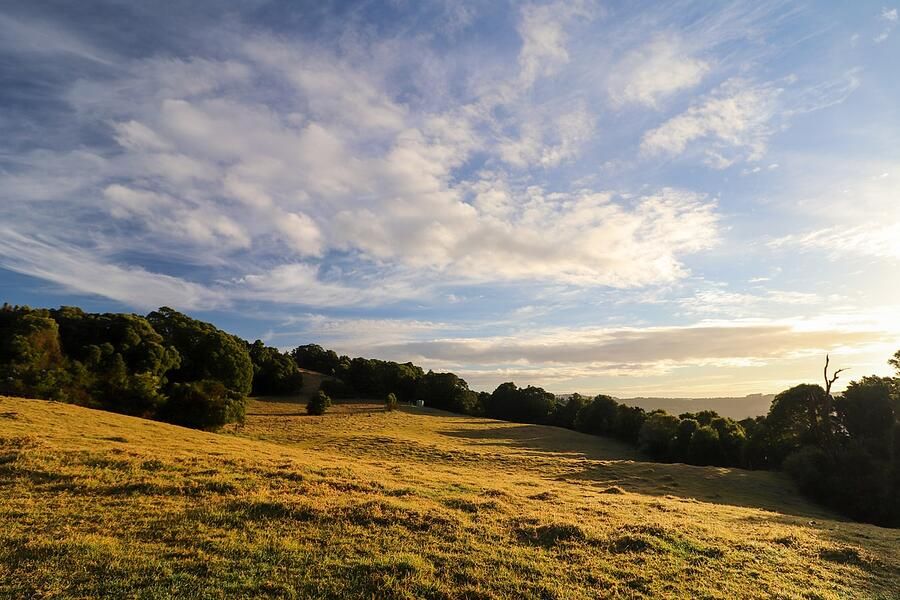
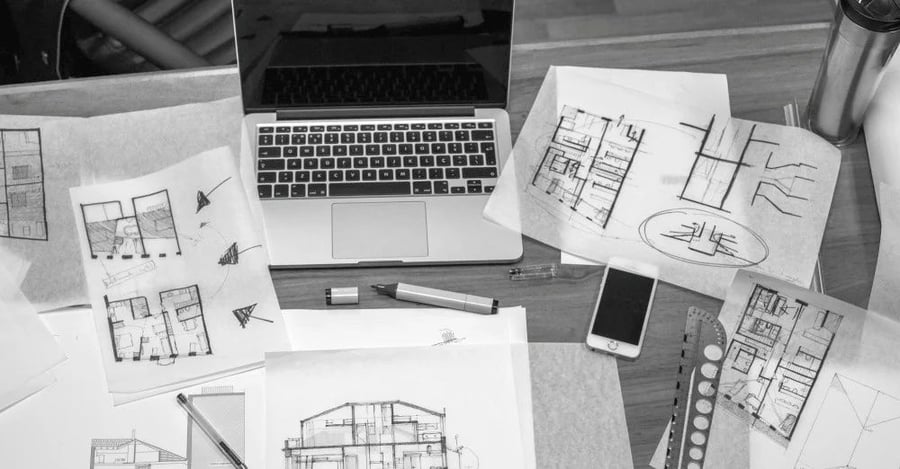
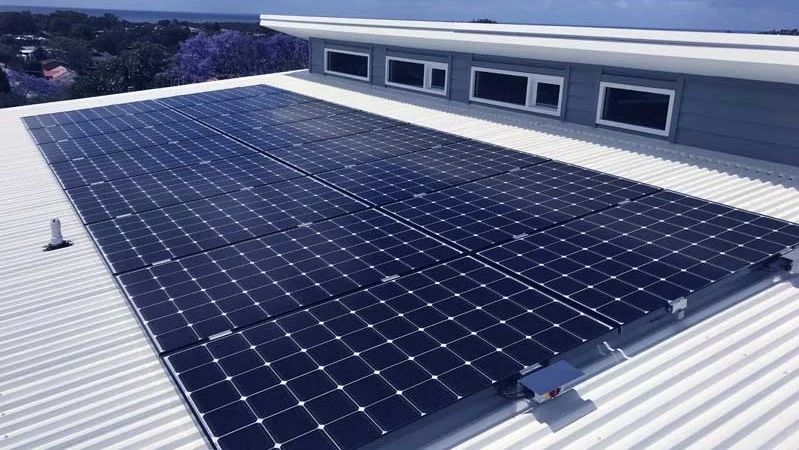
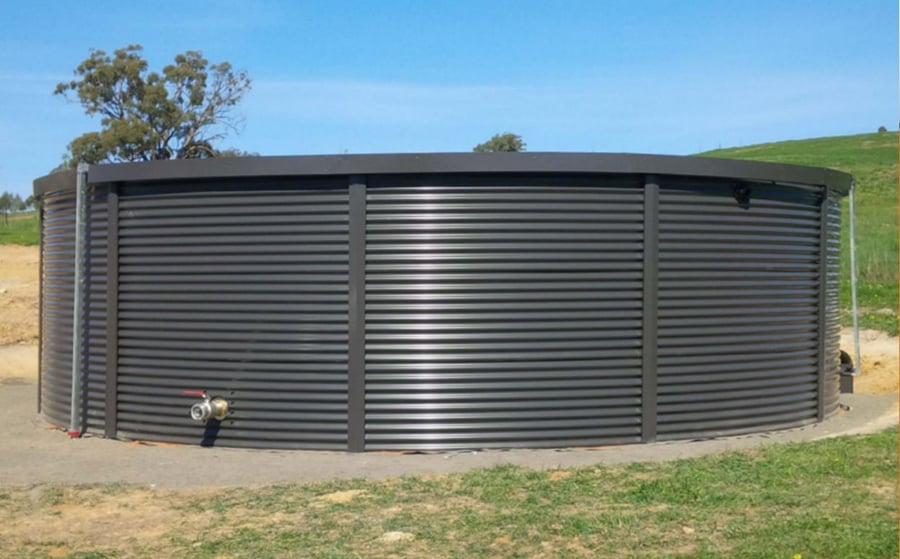
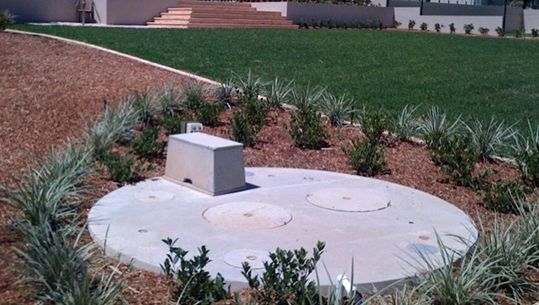
.png?width=770&height=494&name=Why%20use%20Anchor%20Homes%20-%205%20(1).png)
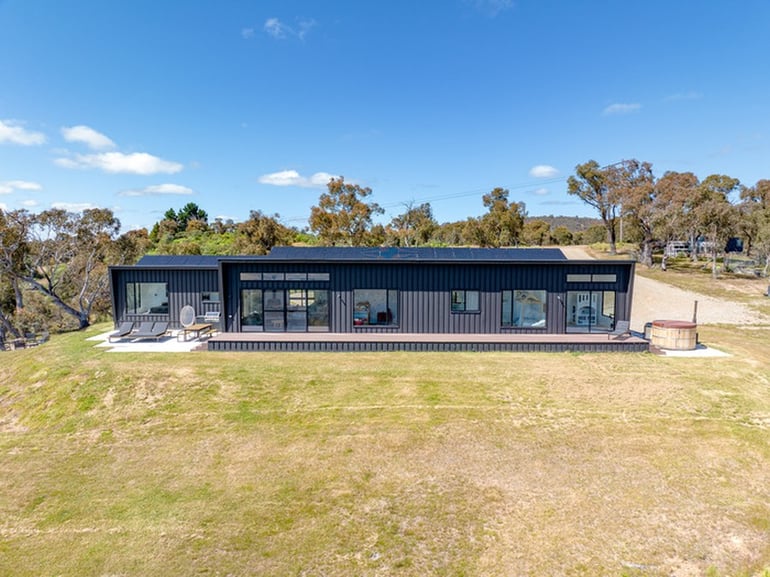

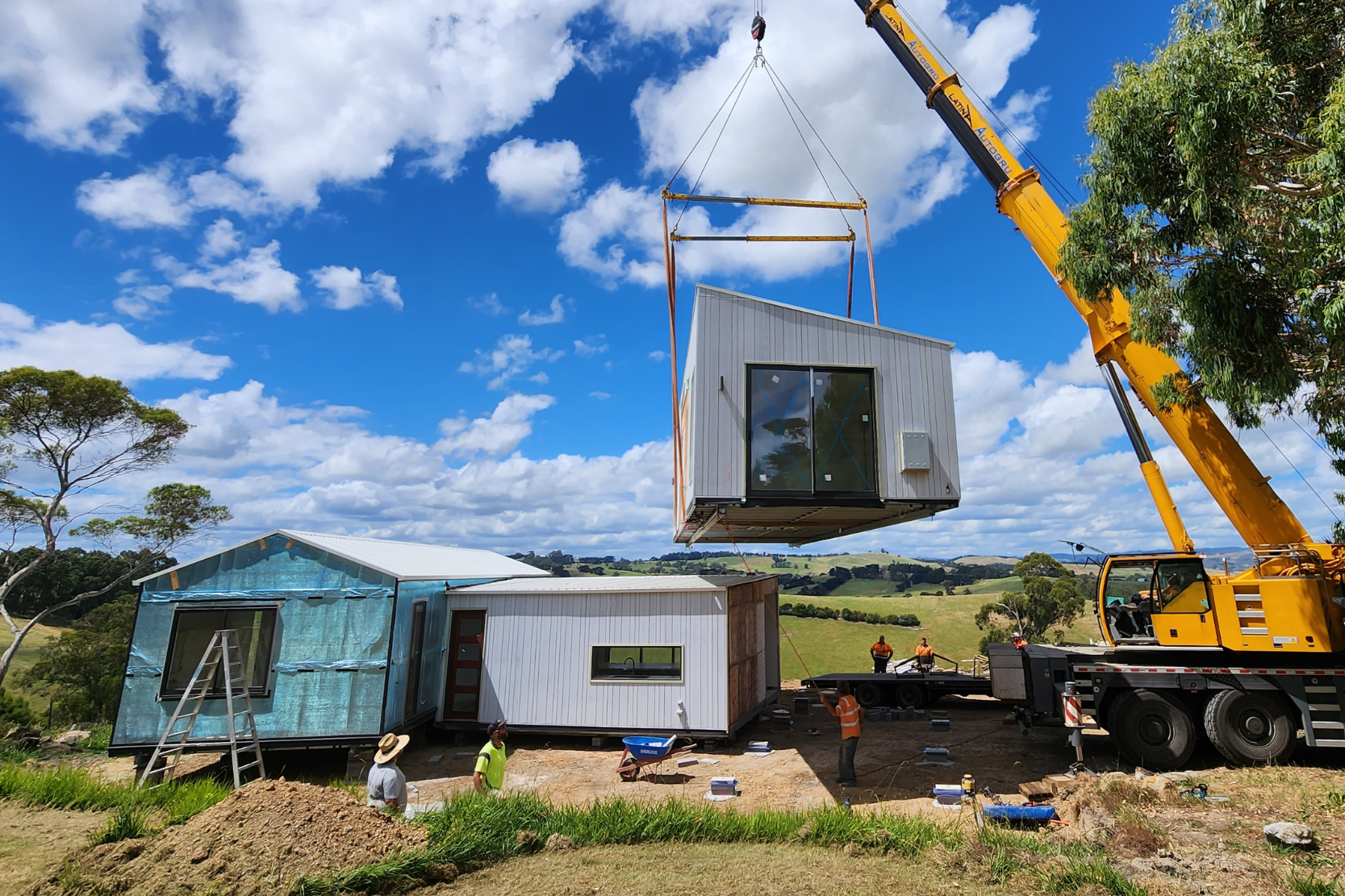
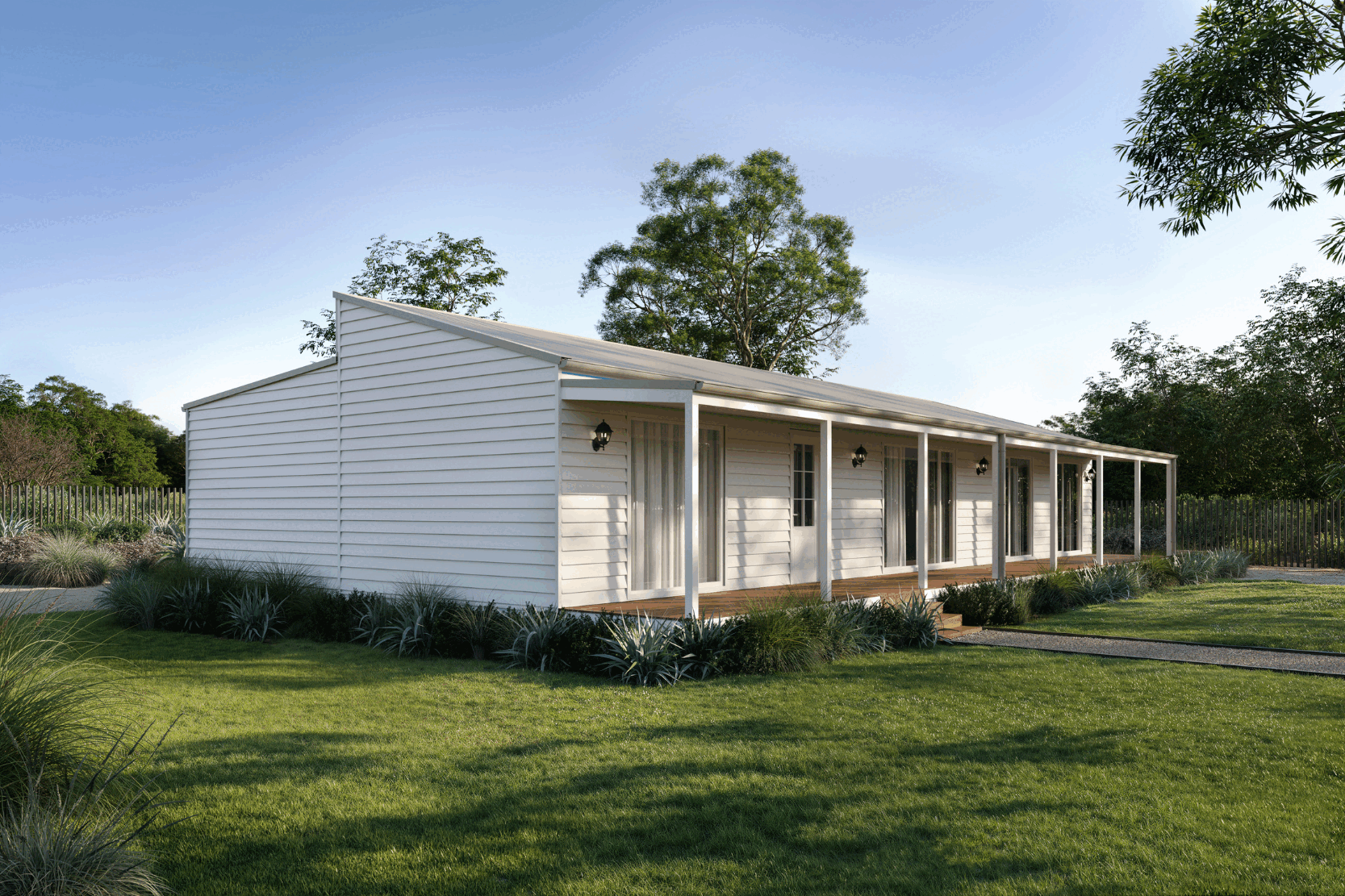
.png)